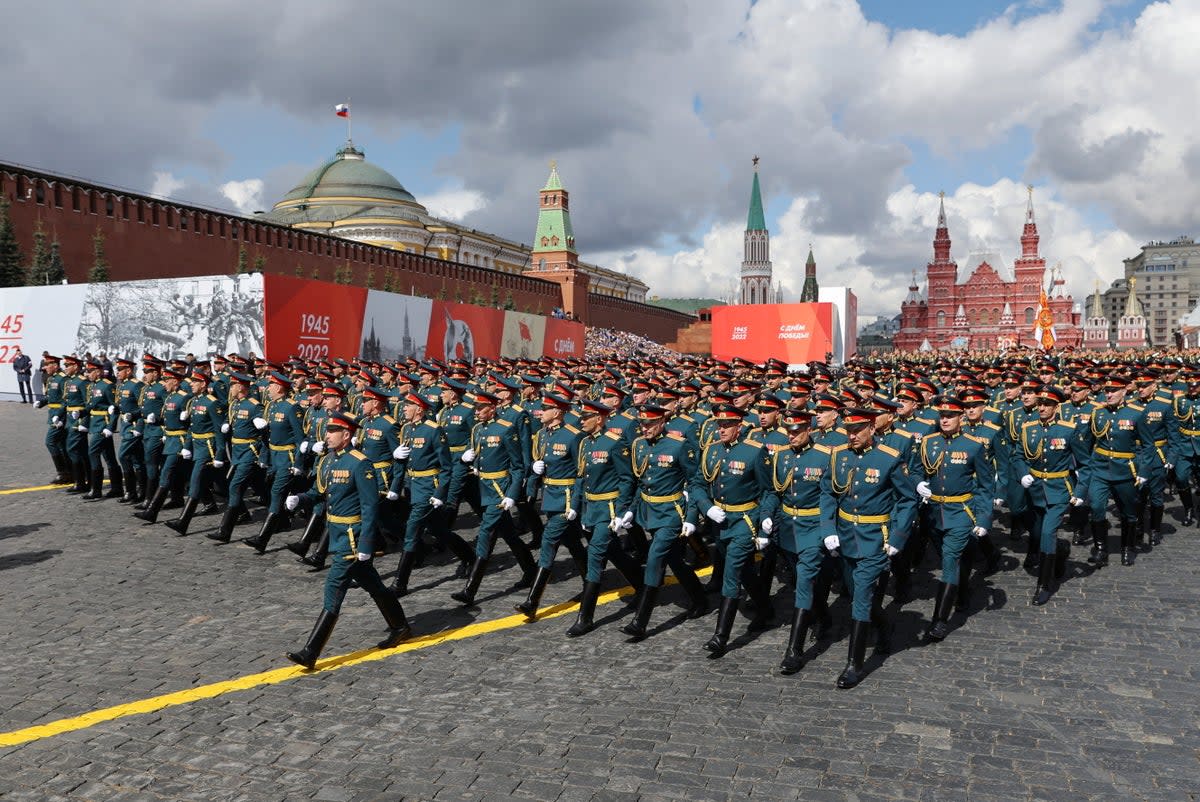Russian regions cancel Victory Day parades due to ‘security concerns’ at the Ukraine border

Russia’s high-profile Victory Day parades have been cancelled in some areas due to “security concerns” at the border, UK military chiefs have said.
The Victory Day Parade is one of the most significant events in the country.
Held on May 9, it marks the end of World War II in Europe with the defeat and surrender of Nazi Germany late in the evening on May 8, 1945.
Despite being a tradition across the country, some regions bordering Ukraine have cancelled the significant event.
According to the Ministry of Defence (MoD), the cancelled events are likely to have been called off due to “security concerns”.
Further afield in Russia, some cities will hold the event which may spark a communication challenge for Vladimir Putin, the MoD has said.
The MoD adds: “Putin couches the ‘special military operation’ in the spirit of the Soviet experience in World War Two.
Latest Defence Intelligence update on the situation in Ukraine - 13 April 2023.
Find out more about Defence Intelligence's use of language: https://t.co/SVyeIJPUC4
🇺🇦 #StandWithUkraine 🇺🇦 pic.twitter.com/YXX1fNpkdM— Ministry of Defence 🇬🇧 (@DefenceHQ) April 13, 2023
“The message risks sitting increasingly uneasily with the many Russians who have immediate insights into the mismanaged and failing campaign in Ukraine.
“Honouring the fallen of previous generations could easily blur into exposing the scope of the recent losses, which the Kremlin attempts to cover up.”
Last year, Mr Putin used the event in Moscow’s Red Square to claim that his attack on Ukraine was necessary to ward off “an absolutely unacceptable threat just next to our borders”.
Going further, Mr Putin said that Russia’s invasion of Ukraine had been necessary because the West was “preparing for the invasion of our land, including Crimea”.
“They were openly preparing another punitive operation in the Donbas, to an aggression against our historical lands, including Crimea,” he added.
Since his speech, Russia’s invasion has stalled while the West has agreed to send additional military - namely tanks - to help with the Ukraine’s counteroffensive.
Ahead of the offensive, a leak of intelligence briefings has rocked Washington and its NATO allies.
The files showed a wealth of information including Russian and Ukrainian casualty rates, military placements and the alleged presence of foreign special forces personnel.

 Yahoo News
Yahoo News 
